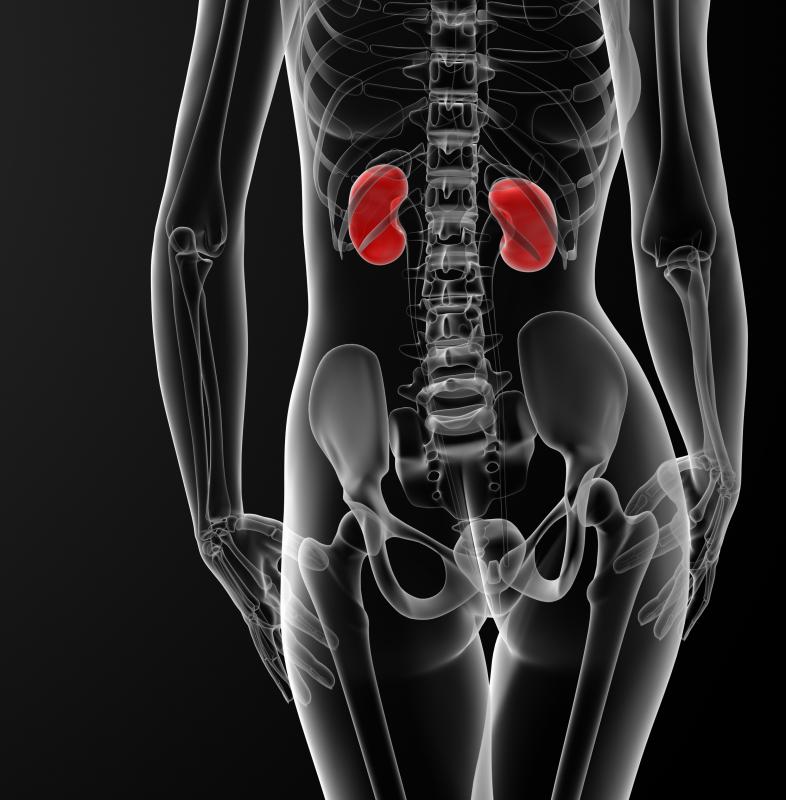At TheHealthBoard, we're committed to delivering accurate, trustworthy information. Our expert-authored content is rigorously fact-checked and sourced from credible authorities. Discover how we uphold the highest standards in providing you with reliable knowledge.
What is Renin?
Renin is an enzyme secreted by the kidneys to regulate the body's balance of fluids and electrolytes. This enzyme is part of the renin-angiotensin system, which regulates blood pressure. Variations in renin levels can be caused by a variety of factors, from a high-salt diet to conditions such as Cushing's Disease. It is possible to determine the amount of renin in the blood with a simple test, which may be administered when a doctor wants to explore the causes for a patient's blood pressure problems.
Renin should not be confused with rennin. Rennin is an enzyme generated in the stomachs of young mammals to help them digest milk. It is also the active component in rennet, a substance which is used to make cheeses and other dairy products such as junket. Although these two enzymes have similar names, they have very different functions, and they originate in different parts of the body. Rennin with two “Ns” is related to the stomach, while one “N” renin is involved with the kidneys.

The kidneys produce renin in response to exercise, stress, or a fall in blood pressure. When the enzyme enters the bloodstream, it interacts with angiotensinogen, producing two results. The first is the contraction of the arterioles, which causes the blood pressure the rise. The second result is an increase in aldosterone production, which leads to increased retention of sodium. When the blood pressure has been stabilized, the renin and aldosterone are metabolized, and the body stops producing them.

In some cases, renin production can increase beyond the level necessary, which causes the patient's blood pressure to rise. Sometimes making a dietary change like cutting back on sodium can address the problem, and in other instances, it may be necessary to take medications to manage blood pressure levels. When a patient presents with high blood pressure, the doctor may request bloodwork to get an idea of the levels of the enzyme.

When a renin test is ordered, a patient typically needs a few days or weeks to prepare. The doctor may ask that the patient reduce sodium intake and avoid certain medications, as these can throw the reading off, and the patient is also asked to rest for at least two hours before the test, to get a resting level. Then, the patient may be asked to engage in activity for a short period of time so that the test can be repeated to see how exercise impacts enzyme levels.
AS FEATURED ON:
AS FEATURED ON:
















Discussion Comments
@gardenturtle and @christym - Thanks so much for the input. I appreciate the description of how the test is done. I am not sure about her blood pressure, as far as when it is the highest but I will certainly pass that information along.
I love this website and the wonderful information received from all the readers!
@momothree- Is your sisters’ blood pressure higher at certain times of the day? I was asking because renin levels are usually the highest in the mornings. Stress can affect those numbers, as well.
@momothree- Renin tests are quite simple to perform. Basically, the test is used to determine if the right amounts of aldosterone are produced. If not, the test should be able to determine the cause. The aldosterone can be checked by doing a 24-hour urine sample. However, the renin test must be done with blood work.
What all is involved in a renin test? Is it done by just drawing blood? This article was very informative. My sister is having a hard time keeping her blood pressure within a normal range. I am thinking about suggesting a renin test.
Post your comments